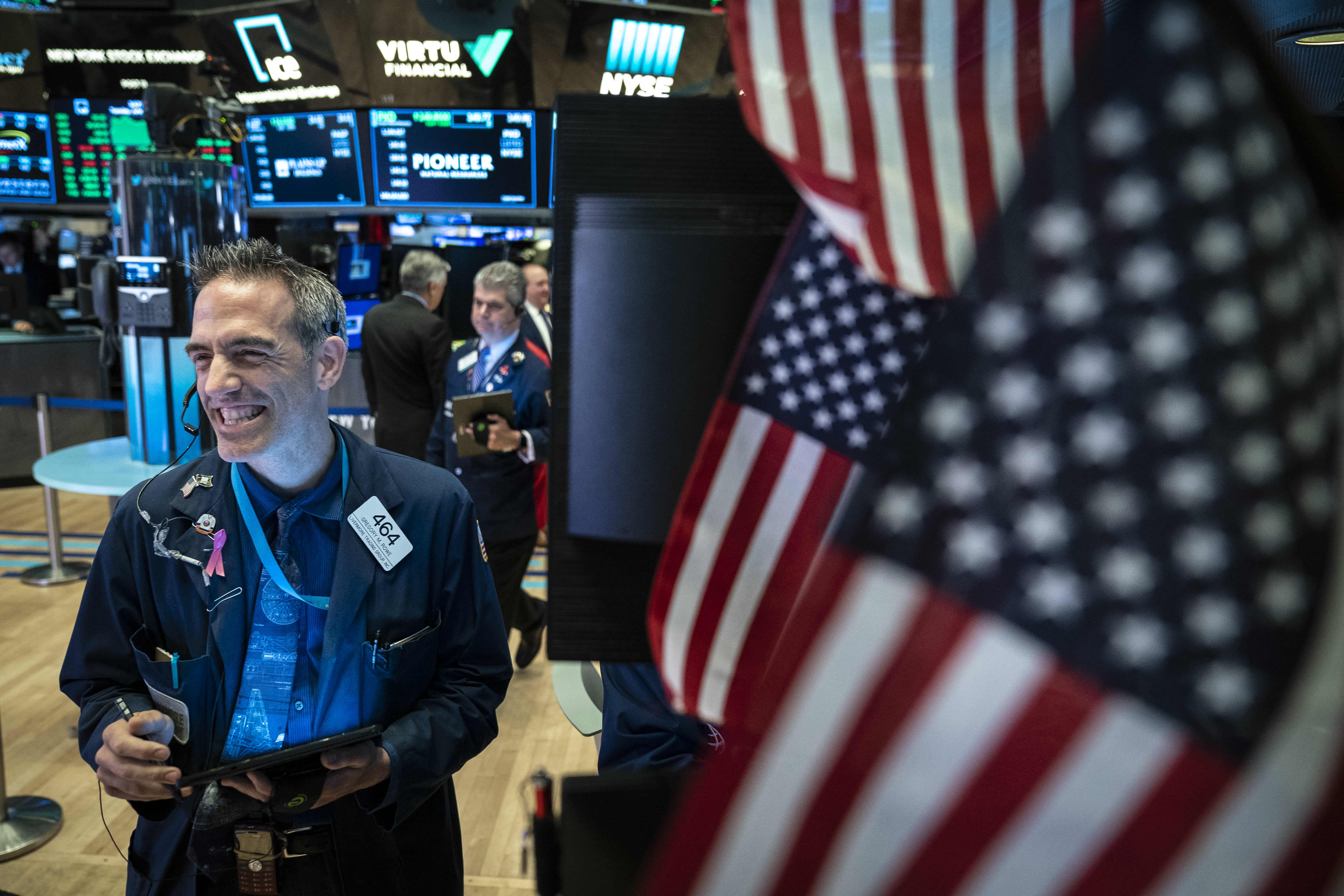1. Stocks set to open higher on US-China trade deal optimism
Traders and financial professionals work on the floor of the New York Stock Exchange (NYSE) at the closing bell, June 18, 2019 in New York City. U.S. markets surged on Tuesday after President Donald Trump announced that he plans to meet with Chinese President Xi Jinping to discuss a trade deal at next week’s G-20 summit in Japan.
Drew Angerer | Getty Images News | Getty Images
U.S. stock futures were pointing to a higher Wall Street open on Friday after the S&P 500 powered higher to a record close on optimism generated by a potential “phase one” China trade deal. Sources told CNBC on Thursday that a first-step agreement has been reached in principle. The White House has offered to scrap new tariffs set for Sunday and cut some existing duties, those sources also said. However, Eunice Yoon, CNBC’s correspondent in China, reports she’s hearing from a government source there that Chinese leaders are reluctant on the possible deal because of the firm farm purchase targets. Looking at how the tariff war between the world’s two largest economies has impacted American consumers, the U.S. government reports November retail sales figures at 8:30 a.m. ET, one hour before the opening bell on Wall Street.
2. Landslide Conservative victory paves way for Brexit
British Prime Minister and leader of the Conservative Party Boris Johnson speaks to supporters and press as the Conservatives celebrate election victory on December 13, 2019 in London, England.
Christopher Furlong/Getty Images
Conservative Party leader Boris Johnson has secured a five-year term as prime minister with a comfortable parliamentary majority, paving the way for Britain to leave the European Union by the end of next month. The landslide result, which proved even more decisive than pollsters had forecast, follows a bitterly-fought and divisive election campaign. Johnson’s victory bookends more than three-and-half years of political wrangling over Brexit, after a small but clear majority of the British electorate voted to leave the EU back in June of 2016. At victory celebrations in central London, Johnson told supporters that the country will leave the EU on Jan. 31.
3. House Judiciary Committee to vote on Trump impeachment
Representative Jerry Nadler, a Democrat from New York and chairman of the House Judiciary Committee, speaks during a hearing in Washington, D.C., on Wednesday, Dec. 11, 2019.
Jose Luis Magana | Bloomberg | Getty Images
The House Judiciary Committee plans to vote on the impeachment of President Donald Trump on Friday at 10 a.m. ET. After a grueling 14-hour meeting, Democrats on the committee suddenly announced that the panel would not vote as planned late Thursday night on the two articles of impeachment. “That was the most bush league play I have ever seen in my life,” said Rep. Doug Collins, D-Ga., who accused Committee Chairman Jerry Nadler, D-N.Y., of turning the proceedings into a “kangaroo court.” Collins and other Republicans alleged Democrats abruptly changed the schedule only to get more media attention during the day on Friday. If the articles were to pass the committee, the full House would hold a floor vote, most likely on Wednesday before lawmakers leave for their holiday break. If approved, a trial on whether to convict Trump and remove him from office would be held in the Senate in January.
5. Facebook shares slide on a report about possible regulatory action
Facebook co-founder and CEO Mark Zuckerberg testifies before the House Financial Services Committee in the Rayburn House Office Building on Capitol Hill October 23, 2019 in Washington, DC. Zuckerberg testified about Facebook’s proposed cryptocurrency Libra, how his company will handle false and misleading information by political leaders during the 2020 campaign and how it handles its users’ data and privacy.
Chip Somodevilla | Getty Images News | Getty Images
Shares of Facebook were under pressure in premarket trading on Friday after falling 2.7% on Thursday on a Wall Street Journal report that the Federal Trade Commission is considering seeking a preliminary injunction against the social media network over antitrust concerns. The injunction would likely seek to block Facebook from enforcing policies around how its apps interact with each other and work with potential rivals, the Journal said. The action could even seek to keep Facebook from pushing forward with its plans to integrate its three messaging services, in case the agency later attempts to unwind its past acquisitions of Instagram and WhatsApp as a potential remedy.
